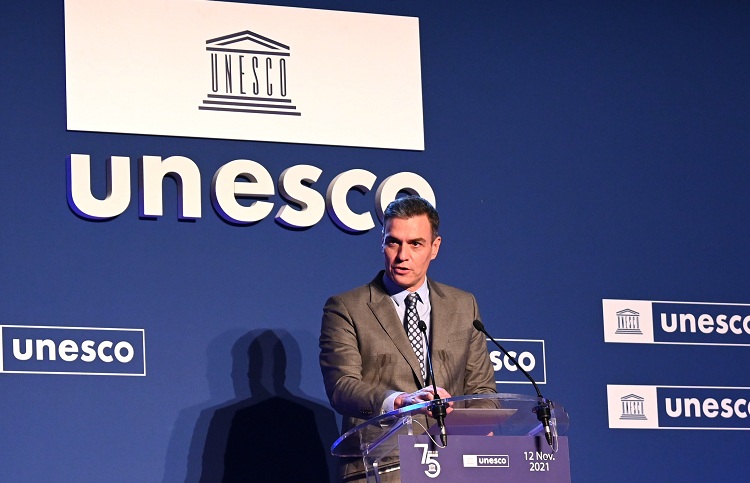The Diplomat
The President of the Government, Pedro Sánchez, participated yesterday in Paris in the Forum for the 75th Anniversary of UNESCO, in which he claimed the importance of science and technology to put an end to the social inequalities aggravated by the COVID-19 pandemic.
During his speech at the forum, held within the framework of the 41st Session of the General Conference of the United Nations Educational, Scientific and Cultural Organization (UNESCO), the President of the Government recalled that COVID-19 has made possible “the incalculable value of science” in combating adversities, but has also accentuated the inequalities that already existed and has opened new gaps.
Education and culture, he continued, “have clearly suffered” the consequences of confinement and limited mobility, “and this, once again, has been unequal,” especially in countries and regions that lack “generalized supply of electricity and Internet with which to mitigate the effects on education by turning to the virtual”. In addition, in the health field, there is still no “equal universal access” to vaccines against CVID, he warned.
For this reason, Sanchez claimed the need to “fight” against these forms of inequality as a “top priority, orienting scientific and technological progress towards social progress, and guaranteeing equal opportunities for all girls and boys around the world“.
During this General Conference, UNESCO will adopt its new Strategy for the next eight years, in addition to important standard-setting instruments, including those related to the Future of Education, the Program and Budgets for the 2022-2023 biennium and, uniquely, the Recommendation on the Ethics of Artificial Intelligence, for the use of AI in the protection and promotion of human rights.
In this regard, Pedro Sánchez stressed the importance of this Recommendation encouraging governments to “take concrete measures to ensure that the digital transformation is people-centered” and recalled that Spain already adopted last July the Charter of Digital Rights to preserve the rights of citizens in the face of the risks of digitization.






